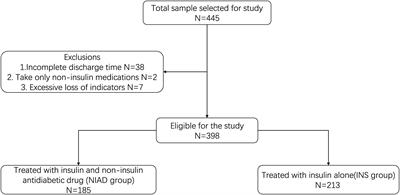ORIGINAL RESEARCH
Published on 25 Sep 2024
Exploring the influencing factors of non-insulin drug prescriptions in discharged patients with type 1 diabetes

doi 10.3389/fendo.2024.1381248
- 336 views
126
Total downloads
1,691
Total views and downloads
You will be redirected to our submission process.

Manuscripts can be submitted to this Research Topic via the main journal or any other participating journal.
You will be redirected to our submission process.